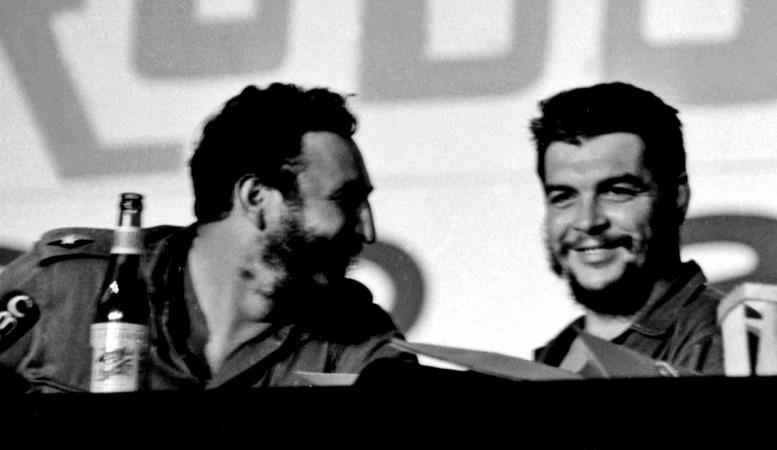
Former Cuban President and revolutionary leader Fidel Castro died on Saturday after battling a long illness. Castro was renowned for leading the famous Cuban Revolution and his camaraderie with the Argentine Marxist revolutionary leader Ernesto "Che" Guevara. Both the leaders along with Raul Castro led the revolution to overturn the authoritarian rule of then Cuban President Fulgencio Batista.
Both the leaders shared a mutual admiration of the other, while Guevara looked up to Castro as man with a "razor-sharp" mind and commitment towards socialism, Castro saw an honest, hardworking and self-sacrificing man in Guevara.
"If we wish to express what we want the men of future generations to be, we must say: Let them be like Che! If we wish to say how we want our children to be educated, we must say without hesitation: We want them to be educated in Che's spirit! If we want the model of a man, who does not belong to our times but to the future, I say from the depths of my heart that such a model, without a single stain on his conduct, without a single stain on his action, is Che!" Castro had once said of Che.
The complexities of the relationship between the two have always been a topic of discussion, while many believe that they shard a great bond of friendship, there are also theories which suggest that Castro betrayed their friendship by not assisting Guevara during the end of his days.
Castro meets Guevara
Castro met Guevara during his travel to Mexico after serving a year of imprisonment for launching a failed attack on the Moncada Barracks in 1953 to overthrow Batista. Guevara, a doctor by profession, had travelled across South America and wanted to overturn United States' capitalistic exploitation of Latin America after witnessing acute hunger and poverty in the region. Both the leaders met and Argentinian got invested in the Cuban rebellion subsequently forming the 26th of July Movement, an organization formed to overthrow Batista's dictatorship.
They lead the guerrilla war
Fidel Castro, brother Raul Castro and Che Guevara then sailed to Cuba to rebel against the government. In Cuba, the leaders led a two-year guerrilla campaign and war where Guevara rose to prominence and was promoted to second-in-command. The war was eventually won in in 1959 and Batista's regime was deposed after which Castro assumed the political and military power as the Prime Minister of Cuba.
Castro appoints Guevara in Cabinet
After the revolution, Castro's increasing ties with the Soviet Union concerned the United States which launched several assassination attempts against the leader. Meanwhile Guevara assumed important position in the new Cuban government as the president of the national bank and instructional director for Cuba's armed forces.
Guevara leaves Cuba
The Argentine leader however left Cuba in 1965 to continue his campaign against oppression in Bolivia where he was eventually captured and executed by the CIA-backed Bolivian forces in La Higuera,1967.
However, after Guevara left Havana, a controversy began to rise as to whether the leader's departure from the country was caused by a political or personal split between him and Fidel Castro.
Did Castro betray Guevara?
In an article published in April, 2015, a Cuban journalist Alberto Müller claimed that Castro betrayed Guevara during the end of his days after he left Cuba. Müller said that Guevara wrote several times in his diary "No contact with Manila," as he marched towards his death in Bolivia. Müller told Efe in an interview that "Manila" was the codeword for Cuba.
The journalist said that there was a guerrilla unit in Havana ready to deploy and rescue Guevara, but "Fidel never authorized the mission," abandoning Guevara to his fate.
"He died in a pitiful manner. Without medications for his asthma, without boots and only rags wrapped around his feet, without water, without food and without allies," Müller said.

















